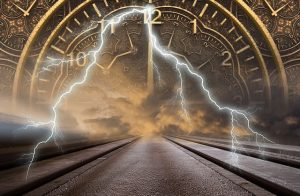Step into a realm where the impossible becomes possible, the boundaries of reality are blurred, and the worlds of supernatural phenomena and extraordinary imagination intertwine. Welcome to the captivating universe of speculative fiction!
This blog post will embark on an exciting journey through the unknown, delving into the wonders and mysteries within the realms of supernatural, futuristic, and other imagined stories.
What is speculative fiction, and why is it so popular?
Speculative fiction is a wide-ranging genre of literature and film that explores how reality could be different from what we know. It often incorporates elements of fantasy science fiction, horror, supernatural/paranormal phenomena, speculative technology, or other imagined worlds.
Why is speculative fiction so popular? Well, there are a few reasons. For starters, it allows readers to escape into a world of limitless possibilities and explore the “what ifs” in life. Speculative fiction also encourages readers to think more deeply about the current state of the world and consider potential futures or alternate realities.
Finally, this genre allows authors and filmmakers to explore topics such as morality and social issues more creatively without being tied down by the constraints of actual reality.
Different types of speculative fiction genres

Speculative fiction encompasses a wide range of different types of stories, each with its distinct style. Here are some of the more specific genres within speculative fiction:
Science Fiction: Explores the implications and potential outcomes of science, technology, and engineering advances. It could include spaceships, aliens, time travel, alternate universes, etc.
Urban Fantasy: Tells stories combining modern-day life elements with supernatural creatures or powers. It could include vampires, wizards, witches, werewolves, ghost stories, weird fiction, fractured fairy tales, and other mythical beings.
Space/Star Opera: Focuses on exploring outer space, often featuring intergalactic adventures and battles.
Cyberpunk: Combines high-tech science fiction elements with postmodernism, set in a dystopian future focused on computer technology and artificial intelligence.
Dark Fantasy: Portrays a grim or sinister world, often including horror fiction elements like monsters and supernatural powers.
Dystopian: Dystopian fiction details an oppressive, nightmarish world where humanity is in a state of decline.
Time Travel: Explores the concept of time travel and its effects on people, places, and events.
Superhero Fiction: Follows superheroes or super-powered characters as they save the world from danger.
Many other subgenres and variations of speculative fiction stretch the boundaries of the imagination. For instance, a story set in an alternate timeline where Germany won World War II would lead to many interesting questions. How would our world look today? What would be different politically, socially, and technologically?
Asking these questions can help writers craft compelling stories within the boundaries of speculative fiction. It can also help us better understand our reality by exploring what could have been or might be in the future.
Whether supernatural phenomena, futuristic landscapes, or incredible adventures in imagined worlds, there is something for everyone to explore in speculative fiction!
Historical influences on speculative fiction – from Greek Mythology to 19th-century novels

– Speculative fiction has evolved over the centuries, with historical influences coming from various sources. In ancient Greece, stories of gods, goddesses, and supernatural creatures were passed down orally through generations. These tales are rooted in myths like those of Zeus and Poseidon.
– In the Middle Ages, fantasy literature such as the famous Arthur Legends and the works of William Shakespeare were popular. Moreover, the 19th century saw a surge in supernatural fiction, with novels like Frankenstein by Mary Shelley and Dracula by Bram Stoker becoming classics.
– In modern times, speculative fiction continues to grow in popularity, with films such as Blade Runner and TV shows like Stranger Things capturing the imaginations of audiences worldwide.
Some of the most famous theoretical fiction books and movies:

1984 by George Orwell
Jurassic Park by Michael Crichton
The Giver by Lois Lowry
The Hitchhiker’s Guide to the Galaxy by Douglas Adams
How to write compelling speculative fiction stories
Writing good speculative fiction requires a particular set of skills and techniques. Here are some tips for crafting compelling stories in this genre:
Develop an exciting premise
Think about what kind of world you want to create, and create a creative, vivid world. Describe your setting and characters to draw readers into the story.
Focus on character development
Establish a protagonist with strong motivations, then reveal their inner thoughts and feelings as they embark on their journey.
Stay true to your genre
Incorporate elements from the genre you are writing in so readers can connect with the world and characters you have created.
Don’t be afraid to experiment
Speculative fiction is about exploring new possibilities, so feel free to experiment with your story ideas and create exciting plot twists for readers.
Subverting expectations in speculative fiction – Going beyond the genre’s traditional tropes

Speculative fiction is a broad genre that encompasses many different subgenres and variations. But while this variety can make these stories more interesting, it also means they often fall into traditional tropes or storylines.
For example, in fantasy stories, the hero is often on a quest to save their homeland from an evil force. In science-fiction stories, the characters constantly face a race against time to prevent a catastrophic event.
If writers want to stand out from the crowd and craft truly captivating stories, they must subvert these expectations and go beyond genre conventions. This can be done by introducing unexpected elements or taking the story in an unconventional direction:
For example, Time manipulation. If done correctly, time manipulation can throw readers for a loop! Time travel stories are one excellent example where events may happen out-of-sequence from how one traditionally expects them to occur in nature—jump back a few centuries into another timeline. No problem there!
Exploring alternative timelines like these becomes extra fun when combined with alternate worlds, too—then all bets are off about what kinds of crazy stuff awaits your characters around every corner.
You might be exploring different species relationships. Research has shown how human relationships have changed, but what about relationships between humans and other species?
Speculative fiction allows authors to explore what these inter-species connections could look like—particularly if they are set in a world where humans co-exist with non-human sentient species such as aliens or mutants. Consider the example of Avatar (2009), which explores the relationship between humans and Na’vi on Pandora planet.
The difference between fantastical and unexpected elements

Fantastical elements are those found far outside everyday experience, such as magical powers, mythical creatures, talking animals, or extraordinary events that defy physical laws. Unexpected elements are far more subtle and grounded in reality—they surprise readers with how things turn out.
For example, take an “original story” about a superhero discovering his special powers after being bitten by a radioactive spider.
In this situation, the fantastical element would be the development of superpowers from an insect bite, while the unexpected element could be any number of unique plot points or character arcs—perhaps he’s hesitant to use his newfound abilities for good until he overcomes certain struggles or learns to harness them for greater purpose.
Fantastical elements can be divided into two categories: actual events occurring in the story world and happenings beyond natural laws or technology.
Examples of actual events include intergalactic space travel in science fiction stories, magical powers like telepathy and teleportation in fantasy stories, or terrifying creatures like zombies or vampires found in paranormal horror tales.
Examples of events happening beyond natural laws can include time travel (Back To The Future), psychic abilities (Star Trek), alien contact (Close Encounters Of The Third Kind), talking animals (Watership Down), otherworldly creatures living among humans like elves and dwarfs (The Lord Of The Rings).
By subverting expectations and pushing boundaries, authors can create stories that challenge readers and draw them into imaginative new worlds.
If you are looking for resources to get started, here are some ready to be explored:
– Check out websites such as SF Encyclopedia and SF Gate for information on authors, novels, and stories within the genre.
– Podcasts such as After the Stay or Unreliable Narrators delve into deeper conversations surrounding imaginative genres.
– Aspiring speculative fiction writers should look into workshops like VONA Voices or Clarion West for tips and tricks to perfect their craft.
Conclusion
Writing speculative fiction can be an excellent way to challenge creativity and explore new worlds.
Investigate your favorite genres and pull from them when constructing your own stories—from classical Greek myths to contemporary sci-fi movies. Most importantly, challenge yourself to go beyond traditional tropes and try something new when writing your speculative fiction.
You can also take the time to read up on privilege and oppression to create characters that are more full-bodied and reflective of our modern society. In doing so, you will create an exciting story and open readers’ minds to more discourse around real-world issues while they get lost in your fantasy creation.
Let’s face it: as humans, we all need some escapism every once in a while! So why not let your mind wander into a world filled with dragons, aliens, fate-changing prophecies, or anything else your creativity can craft? The possibilities are endless!
Thank you for taking the time to read. May you find success and joy in all that you create.
If you’re working on your first novel and are looking for more help with your writing, please check out my other articles at https://ullahakanson.com/blog/
Best of luck with your writing!
Ulla
www.ullahakanson.com

